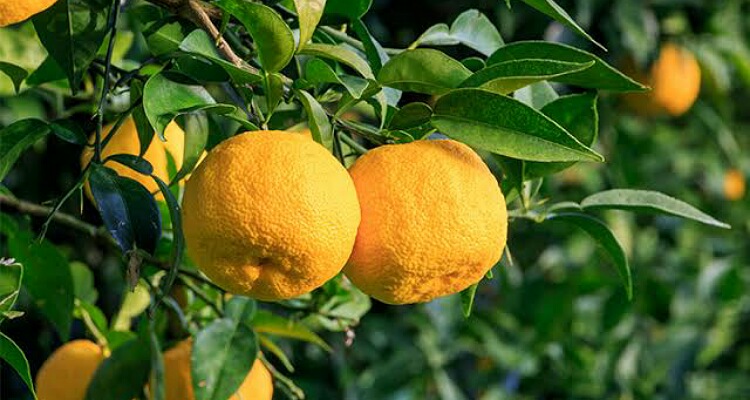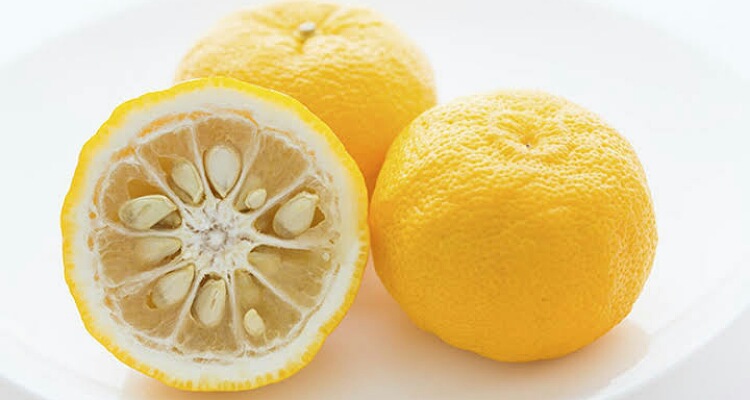Yuzu fruit or Yuja is a hybrid citrus fruit found in the far eastern countries of China, Japan, and Korea. Its popularity is rising due to the claimed health benefits of this fruit.
Yuzu fruit: the description
Yuzu fruit is also called Citrus Junos. Its origin is China and this was more than 1k years back. It 8s now grown in Japan, Korea, and the USA.
America banned import of this fruit from the eastern world for fear that the crop and fruit might have some infestation and hence lead to health issues. But locally grown yuzu is available there but the supply is limited.

The fruit is small with a diameter of 2 to 3 inches only. Its skin is yellow and thick. The aroma and sourness of this fruit is stronger than other common citrus fruits.
Its fruit juice, seeds, and skin are used for various purposes. They have a rich aromatic flavor that is used in seasonings, marmalade, vinegars, and sauces.
The plant also yields oil that is the basis of cosmetics, perfumes, and also utilized during aromatherapy.
Yuzu and its nutritional values
The fruit might not be very caloric dense but is has a hoard of vital nutrients in it. 100 g of the fruit gives 53 calories. The protein content is just 0.8 g.
But the carbohydrates as expected is higher to the tune of 13.3 g. Fats forms 0.3 g and the rest are vitamins and minerals and water. Fiber is 1.8 g in this.
The fruit has ample amounts of vitamin C, A, B5, B6, thiamine, as well as copper. Small amounts of magnesium, iron, zinc, calcium, vitamin E, niacin, and riboflavin also exist in this fruit.
Additionally, the fruit is loaded with potent plant substances like carotenoids, flavonoids, and limonoids. These serve as antioxidants to mop up the dangerous free radicals in the body.
Thus cancer cells proliferation is halted, it reduces inflammation and promotes the health of the heart.

Also, read Passion fruit: nutritive value, health benefits, and uses!
Health benefits of yuzu
The fruit is finding a place in the menu of several health-conscious people of the world. Having realized its benefits, they want to consume it for health maintenance and to keep the common body diseases away.
The fruit can help reduce the incidence of heart disease, type 2 diabetes mellitus, brain ailments, and specific types of cancer. It can help to give a glow to the skin and prevent wrinkles and damage.
Inflammatory body conditions are controlled and the fruit also helps in some forms of asthma. Some claim that the fruit helps in weight loss and overcome inflammatory bowel diseases.

There are to date no human clinical studies on the usefulness of this fruit. But animal studies and in vitro studies reveal that the fruit increases blood flow in the body.
Hence it prevents clots and blockages in arteries. Thus it can overcome heart attack, strokes, and ischaemic heart diseases. Heart failure and high cholesterol can be controlled.
The rich aroma of the fruit has a soothing effect on the mind and can reduce anxiety and stress. The effects were similar to that obtained after inhaling lavender oil. The fruit also has anti-infective properties and is good for bones.